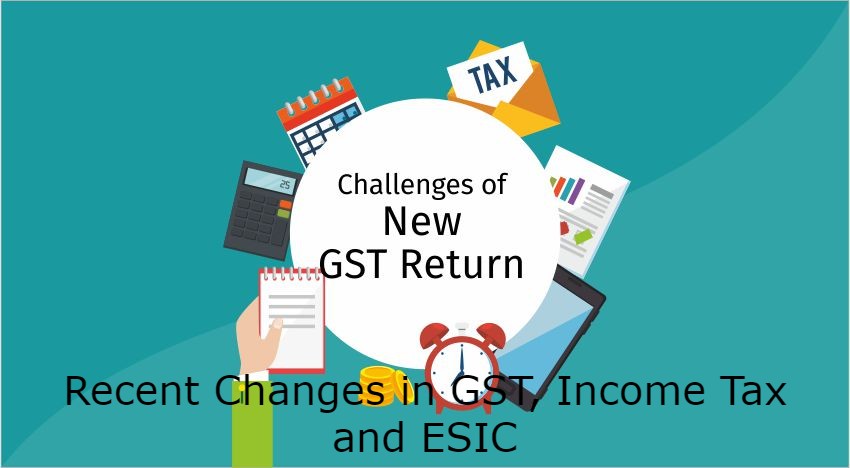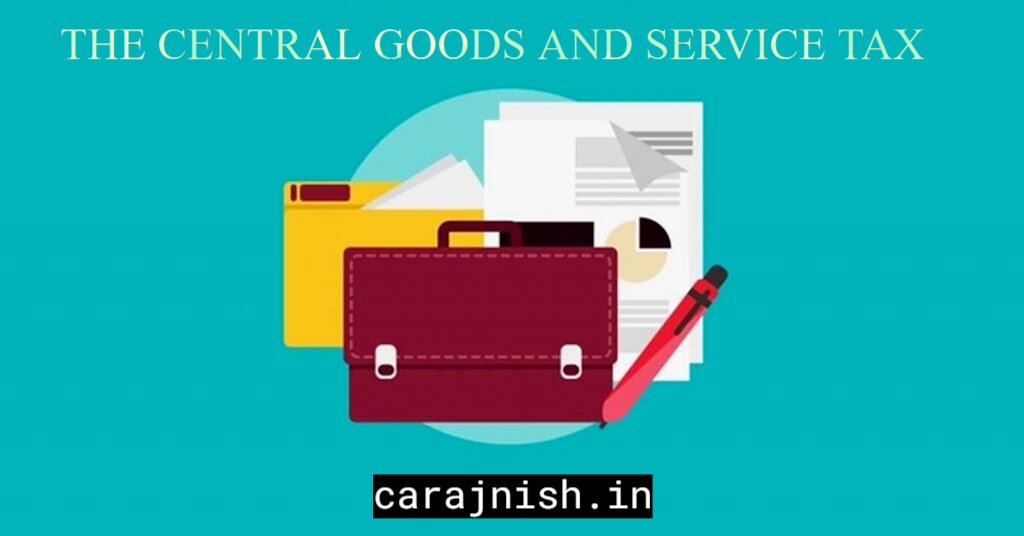GST
Outcome of 37th Meeting of the GST Council, Goa held on 20 September, 2019
The GST Council, in its 37th meeting held today at Goa, recommended the following:
1. Relaxation in filing of annual returns for MSMEs for FY 2017-18 and FY 2018-19 as under:
a. waiver ofthe requirement of filing FORM GSTR-9A for Composition Taxpayers for the said tax periods; and
b. filing of FORM GSTR-9 for those taxpayers who (are required to file the said return but) haveaggregate turnover up to Rs. 2 crores made optional for the said tax periods.
2. A Committee of Officers to be constituted to examine the simplification of Forms for Annual Return and reconciliation statement.
3. Extension of last date for filing of appeals against orders of Appellate Authority before the GST Appellate Tribunal as the Appellate Tribunals are yet not functional.
4. In order to nudge taxpayers to timely file their statement of outward supplies, imposition of restrictions on availment of input tax credit by the recipients in cases where details of outward supplies are not furnished by the suppliers in the statement under section 37 of the CGST Act, 2017.
5. New return system now to be introduced from April, 2020 (earlier proposed from October, 2019), in order to give ample opportunity to taxpayers as well as the system to adapt and accordingly specifying the due date for furnishing of return in FORM GSTR-3B and details of outward supplies in FORM GSTR-1 for the period October, 2019 – March, 2020.
6. Issuance of circulars for uniformity in application of law across all jurisdictions:
a. procedure to claim refund in FORM GST RFD-01A subsequent to favourable order in appeal or any other forum;
b. eligibility to file a refund application in FORM GST RFD-01A for a period and category underwhich a NIL refund application has already been filed; and
c. clarification regarding supply of Information Technology enabled Services (ITeSservices) (in supersession of Circular No. 107/26/2019-GST dated 18.07.2019) beingmade on own account or as intermediary.
7. Rescinding of Circular No.105/24/2019-GST dated 28.06.2019, ab-initio, which was issued in respectof post-sales discount.
8. Suitable amendments in CGST Act, UTGST Act, and the corresponding SGST Acts in view of creation ofUTs of Jammu & Kashmir and Ladakh.
9. Integrated refund system with disbursal by single authority to be introduced from 24th September, 2019.
10. In principle decision to link Aadhar with registration of taxpayers under GST and examine the possibility of making Aadhar mandatory for claiming refunds.
11. In order to tackle the menace of fake invoices and fraudulent refunds, in principle decision to prescribe reasonable restrictions on passing of credit by risky taxpayers including risky new taxpayers.
Direct Tax
The government announced measures on 23rd August 2019 to revive economic growth and markets including the withdrawal of higher taxes for foreign portfolio investors (FPIs) and said it would release funds for bank recapitalisation upfront.
The government hopes the new measures will improve the sentiment leading to higher private investment.
Following are the summary of press release made by the government: –
- Corporate tax rates slashed to 22% for domestic companies and 15% for new domestic manufacturingcompanies and other fiscal reliefs
- The Government has brought in the Taxation Laws (Amendment) Ordinance 2019 to make certainamendments in the Income-tax Act 1961 and the Finance (No. 2) Act 2019. The salient features of these amendments are as under:-
- In order to promote growth and investment, a new provision has been inserted in theIncome-tax Act with effect from FY 2019-20 which allows any domestic company an option to pay income-tax at the rate of 22% subject to condition that they will not avail any exemption/incentive. The effective tax rate for these companies shall be 25.17% inclusive of surcharge & cess. Also, such companies shall not be required to pay Minimum Alternate Tax.
- In order to attract fresh investment in manufacturing and thereby provide boost to ‘Make-in-India’ initiative of the Government, another new provision has been inserted in the Income-tax Act with effect from FY 2019-20 which allows any new domestic company incorporated on or after 1st October 2019 making fresh investment in manufacturing, an option to pay income-tax at the rate of 15%. This benefit is available to companies which do not avail any exemption/incentive and commences their production on or before 31st March, 2023. The effective tax rate for these companies shall be 17.01% inclusive of surcharge & cess. Also, such companies shall not be required to pay Minimum Alternate Tax.
- A company which does not opt for the concessional tax regime and avails the tax exemption/incentive shall continue to pay tax at the pre-amended rate. However, these companies can opt for the concessional tax regime after expiry of their tax holiday/exemption period. After the exercise of the option they shall be liable to pay tax at the rate of 22% and option once exercised cannot be subsequently withdrawn. Further, in order to provide relief to companies which continue to avail exemptions/incentives, the rate of Minimum Alternate Tax has been reduced from existing 18.5% to 15%.
- In order to stabilise the flow of funds into the capital market, it is provided that enhanced surcharge introduced by the Finance (No.2) Act, 2019 shall not apply on capital gains arising on sale of equity share in a company or a unit of an equity oriented fund or a unit of a business trust liable for securities transaction tax, in the hands of an individual, HUF, AOP, BOI and AJP.
- The enhanced surcharge shall also not apply to capital gains arising on sale of any security including derivatives, in the hands of Foreign Portfolio Investors (FPIs).
- In order to provide relief to listed companies which have already made a public announcement of buy-back before 5th July 2019, it is provided that tax on buy-back of shares in case of such companies shall not be charged.
- The Government has also decided to expand the scope of CSR 2 percent spending. Now CSR 2% fund can be spent on incubators funded by Central or State Government or any agency or Public Sector Undertaking of Central or State Government, and, making contributions to public funded Universities, IITs, National Laboratories and Autonomous Bodies (established under the auspices ofICAR, ICMR, CSIR, DAE, DRDO, DST, Ministry of Electronics and Information Technology) engaged in conducting research in science, technology, engineering and medicine aimed at promoting SDGs.
The total revenue foregone for the reduction in corporate tax rate and other relief estimated at Rs. 1,45,000 crore.
ESIC
Changes in ESI Act & Regulations w.e.f. 1.10.2019✍
1. Employees must be registered online within 10 days from their date of joining. Thereafter employees can not be registered. (Normally registration of the employees is done while preparing e-Challan that is after the closure of wage period. Now it’s to be done from the date of joining of the employee or else system will not accept the employee done with back date)
2. Monthly ESI Contribution can not be paid after 42 days from the due date. (No clarity as to how to pay ESI Contribution for back period)
3. Employee whose per day salary is Rs. 176/- or less need not to pay Employee’s contribution and the same will be paid by Govt. However, Employer will have to pay their share of contribution. (Part time employees might get benefit of the same)
4. Employee will have to collect their Biometric ESI Permanent Card from nearest Branch Office. (Earlier Employer used to issue it)




